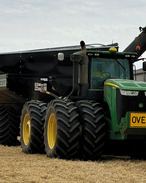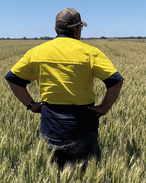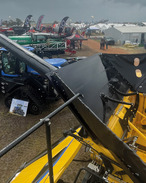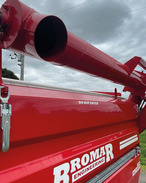This article is 7 years old. Images might not display.
The market study was launched last April, after a number of issues were raised through previous ACCC investigations and in the Senate Inquiry into the effect of market consolidation on the red meat processing sector.
After consulting all parts of the supply chain as part of the Cattle and beef market study, the ACCC found there was a lack of trust in the carcase grading system, as well as concerns over price reporting and anti-competitive conduct affecting competition in cattle and beef sales.
The report made 15 recommendations, including:
- improving price information by requesting that meat processors publish price grids for sales made direct to processors;
- an increase in the frequency of AUS-MEAT’s random and unannounced audits of cattle grading and trimming in processing plants to improve integrity in the system;
- the introduction of an independent dispute resolution process to apply across the industry;
- the prioritisation of objective carcase measurement technology to increase the accuracy and transparency of carcase assessments, and the sharing of the data arising from the technology with cattle producers;
- the introduction of a buyers register and post auction buyers report for major saleyards;
- expanded reporting of historical prices to make it easier for producers to compare prices paid for cattle sold through saleyards, paddock sales and over-the-hooks
ACCC chairman Rod Sims said improvement was required along the domestic supply chain, but was troubled by suggestions of anti-competitive conduct, which emerged in the study.
“The ACCC takes allegations of this nature very seriously and we are currently assessing if there are any breaches of the law,” Sims said.
“Misconduct in the agriculture sector is an enforcement priority area for the ACCC this year and if we find substance to these allegations, we won’t hesitate to take action.”
ACCC commissioner Mick Keogh said it was important for the entire industry to take responsibility for implementing the changes.
“The ACCC recommends that the Red Meat Advisory Council assume responsibility for implementing the recommendations. We encourage industry participants to work constructively with the Council to ensure that they are implemented as quickly as possible,” Keogh said.
Red Meat Advisory Council chairman Don McKay said the study acknowledged the range of improvements already underway to improve competitiveness within the beef cattle supply chain.
“The Red Meat Advisory Council will consider the recommendations carefully to see whether they can be progressed to create benefits back to individual Australian red meat and livestock businesses,” McKay said.
Meat and Livestock Australia managing director Richard Norton said the organisation would also continue to support improvements in transparency and competitiveness within the red meat industry by further enhancing its market reporting and prioritising objective carcase measurement technology.
“As a service provider to red meat and livestock producers, MLA is committed to working with industry to continuously improve our market reporting and insights services to provide the most comprehensive, timely and professional information,” Norton said.
“The importance of improved information was recognised in the Meat Industry Strategic Plan 2020 and is a key support for the shift to value based marketing.”






















